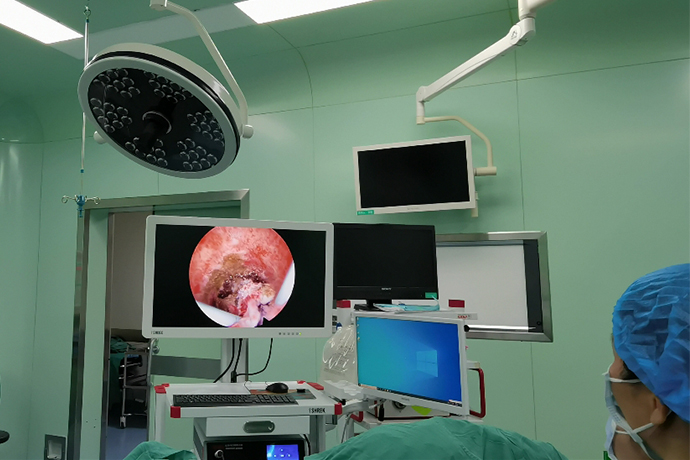- Shanghai, China
- [email protected]
- +86-21-58189111
Diagnose symptoms
abnormal uterine bleeding
Infertility or repeated miscarriages
Uterine malformation
intrauterine foreign body
Diagnosis of intrauterine adhesions
Diagnosis of IUD
Indications for hysteroscopy
Unclog the opening of the fallopian tubes
Selective tubal intubation test
foreign body removal
Treatment of tubal pregnancy by injecting medicine under hysteroscope
Indications for hysteroscopic surgery
endometrial polypectomy
Myomectomy: Submucosal fibroids are less than 7 cm in diameter, intramural fibroids protrude into the uterine cavity, about 4-5 cm in diameter, and cervical fibroids are less than 3-4 cm in diameter.
hysterectomy
Intrauterine Adhesiolysis
Intracervical vegetations

operation time
1-10 days after menstruation is clean, a small amount of spotting can also be checked.
Contraindications
There are no clear absolute contraindications, the following are relative contraindications.
1. Vaginal and pelvic infections.
2, a lot of uterine bleeding.
3. Those who want to continue pregnancy.
4. Current uterine perforation.
5. The uterine cavity is too narrow or the cervix is too hard to expand.
6. Acute subacute inflammation of reproductive tract
7. Severe heart, liver, lung and kidney disease
8. Invasive cervical carcinoma,
9. Genital tuberculosis without anti-tuberculosis treatment
10. The patient suffers from severe medical diseases and cannot tolerate the uterine distension operator.
11. Reproductive tract tuberculosis without anti-tuberculosis treatment.
12. Those who have no follow-up treatment for blood diseases.
Leave a Comments